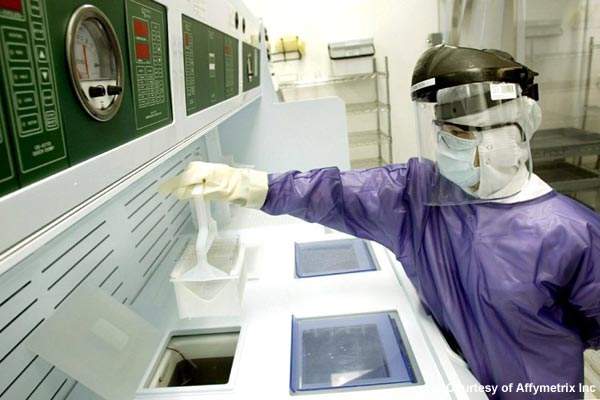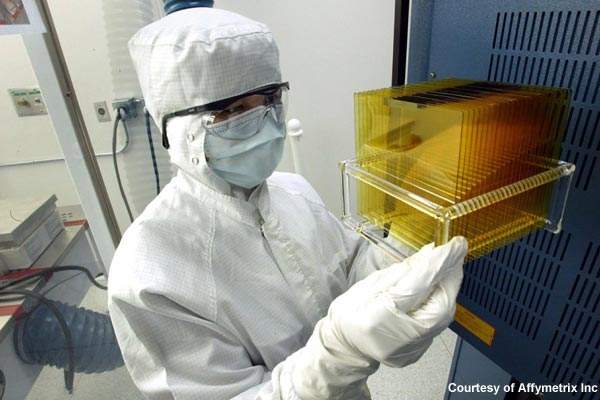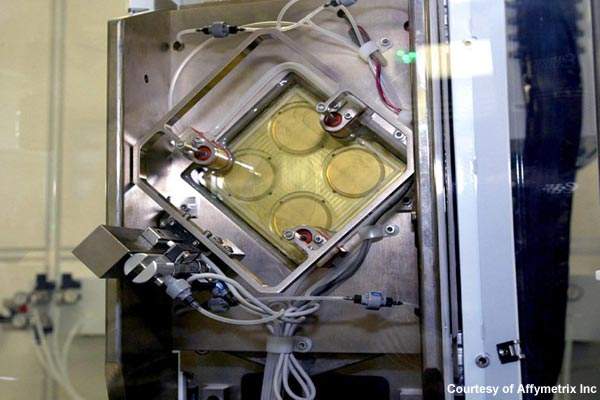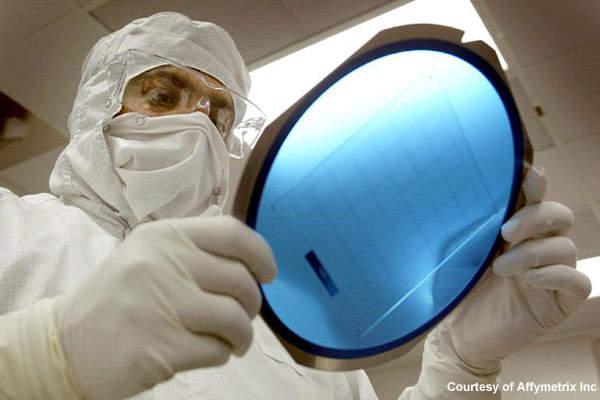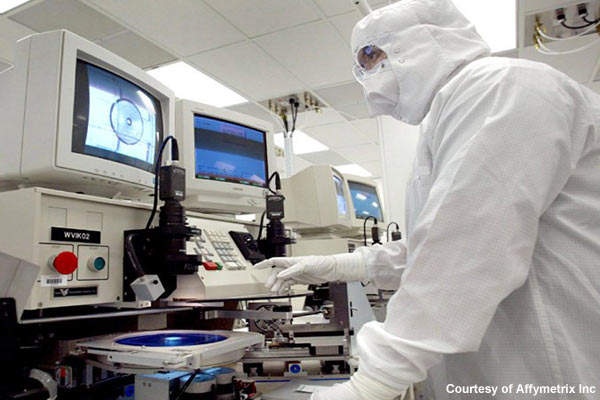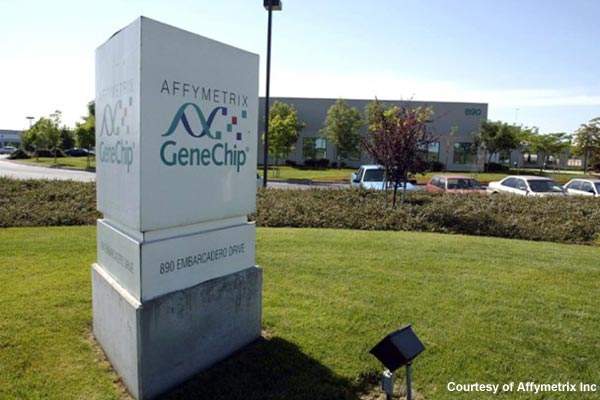Affymetrix Inc was one of the pioneering companies in genetic microarray technology in the 1980s. It now manufactures products for genetic research including diagnostic tools and microarray systems for genome elucidation. DNA microarrays are high-throughput technology used for research in molecular biology and medicine in identifying and measuring genetic information associated with complex diseases and testing potential drugs.
The technology involves devices with thousands of arrayed microscopic spots of DNA oligonucleotides, each containing picomoles of specific DNA sequence. The arrayed DNA sequences are used as probes to analyse cDNA or cRNA samples under highly stringent conditions. The hybridised probes are usually detected using fluorescence detection to give qualitative and quantitative results of nucleic acid sequences in the target sample (identification and quantification).
For the microarrays the DNA probes are covalently bonded to a solid surface using a chemical matrix (various silanes or polyacrylamide). The solid surface in the case of Affymetrix GeneChips is quartz glass (5in square chips).
Affymetrix quartz GeneChips using oligonucleotide microarrays are used for scanning for the presence of particular genes in biological samples. The microarrays are used on a single chip to carry out thousands of gene screening experiments in parallel.
New facility
In May 2007 Affymetrix opened its new manufacturing facility in Singapore. This is the company’s first manufacturing facility located outside the US and has raised speculation about the company expanding to an area where the costs of manufacturing are much less.
March 2008 saw 23 job cuts at Sacramento and a statement about manufacturing transfer to Singapore. In the second quarter of 2009, the West Sacramento facility was closed and the entire probe array manufacturing operations were transferred to the Singapore facility. The Affymetrix Singapore facility is located at the Keppel Logistics Building at Gul Circle, Jurong Industrial Park. The facility has been operational since the end of 2006 and employs 120 staff members. The facility has been designed to look and operate like the company’s manufacturing facility in Sacramento.
Strategy
In late 2005, as the company was unable to keep up with the demand for its gene chip products, it started construction on a new manufacturing plant on the West Sacramento campus. This was completed in 2007. The facility in doubled output there by the second half of 2007 and contained production lines for the next generation of high-resolution gene chip technology.
At the same time the company also purchased a former semiconductor factory in Singapore, which was converted into a 147,000ft² gene chip fabrication facility using equipment moved from West Sacramento. The Singapore site already had a lot of the cleanroom infrastructure installed due to its semiconductor origins and so the conversion was easier than expected.
Affymetrix
Affymetrix has its headquarters in Santa Clara, California and now has two manufacturing facilities – one in Cleveland, Ohio, and the other in Singapore. The Singapore facility focuses on probe array manufacturing while the Cleveland facility concentrates on reagent manufacturing. Instrument manufacturing operations are being outsourced.
Medical diagnostics
Affymetrix has partnered with eleven different partners, powered by Affymetrix (PbA), to provide technology for diagnostic tests. One of the most recent agreements was with the French company Ipsogen for its Ipsogen MapQuant Dx Genomic Grade tumour grading test.
Tumour grade is one of the key indicators of malignancy and a more accurate measurement is a help to oncologists making decisions about treatment. Grade-3 tumours require chemotherapy, while grade-1 tumours are only treated with hormonotherapy. Traditional grading techniques show 50% of tumours classified in the intermediate grade-2 category, making treatment decisions problematic.
The MapQuant Dx Genomic Grade is a molecular test to grade breast carcinomas based on a 97-gene expression signature of the tumour. The use of this test provides a more precise and accurate grading measurement. There are now more than 20 different molecular assay tests based on the Affymetrix platform under development by Affymetrix and its 11 PbA partners.

